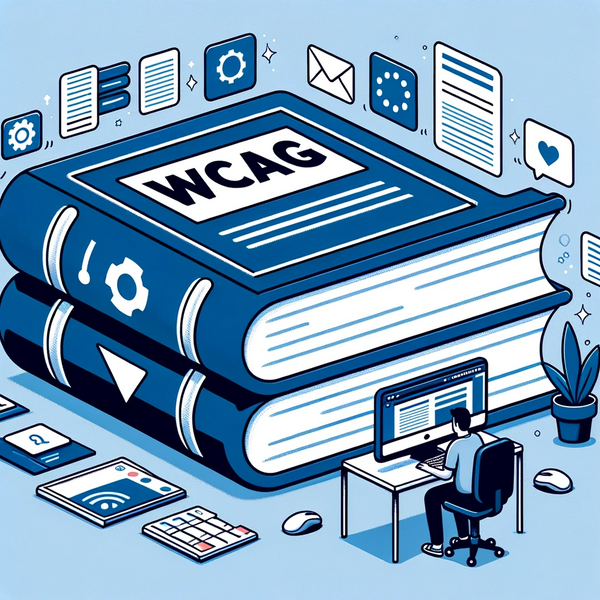SEO and web accessibility: An imperative for Ukrainian business


Institute of Innovative Governance
08.11.2023
In today's interconnected digital world, a strong online presence is not just a luxury, but a necessity. Digital frontiers are expanding rapidly, and companies that fail to evolve risk being left behind. For Ukrainian businesses, which are riding the wave of technological progress and are also trying to help during the war, this need is even more urgent. In this context, two pillars - search engine optimisation (SEO) and web accessibility - become critical. While neither concept is new, their combined potential remains largely untapped by many companies. A significant problem is the reluctance or inertia of companies to adapt their websites to these standards. The question arises: How can we encourage this adaptation? The answer lies in positioning SEO as a tangible and useful outcome of web accessibility.
An overview of SEO and web accessibility.
Search engine optimisation (SEO): At its core, SEO is the practice of optimising a website to improve its position in search engines, primarily Google. This includes creating quality content, ensuring fast page loads, optimising images, etc.
Web accessibility: This means that websites, tools and technologies should be designed and developed in such a way that people with disabilities can use them without hindrance. Web accessibility encompasses all impairments that affect access to the Internet, including auditory, cognitive, neurological, physical, speech, and visual impairments.
There is a symbiotic relationship between SEO and accessibility.
Many of the best SEO practices overlap with web accessibility standards. For example:
Providing alt text for images not only helps visually impaired users, but also helps search engines understand the context of the image, improving SEO. Alt text provides search engines with context about an image, which can improve an image's ranking on Google Images and give more context to the surrounding content.
Using appropriate headings (H1, H2, etc.) makes content more accessible to those using screen readers and allows search engines to better index the content. Google search bots rely on the structure of a web page to understand its content. Web accessibility guidelines recommend using semantic HTML elements (such as <header>, <nav>, and <article>) to clearly define content. This not only benefits users of screen readers, but also allows search bots to better understand the content of the page.
Providing transcripts of audio and video content ensures that deaf or hard-of-hearing users can access the material. It also gives search engines more content to crawl, improving SEO.
Descriptive links help both users and search engines. "Click here" provides no context, but "Learn more about our services" is informative for all users.
Although there is no official document anywhere that following web accessibility guidelines will increase search rankings, the intersection between SEO best practices and web accessibility standards is clear. Google has always emphasised building websites that provide a good user experience. The company's algorithms are designed to prioritise sites that users find valuable and easy to navigate. Many web accessibility practices, such as a logical content hierarchy, clear navigation, and descriptive link text, directly contribute to a better user experience that is in line with Google's values.
For Ukrainian businesses, optimisation for SEO and web accessibility can provide a competitive advantage such as market expansion, faster integration of Ukraine into the EU, improved reputation, etc.
With an inclusive website, companies can reach a wider audience, including people with disabilities, increasing potential customers and revenue. As Ukraine continues its global integration, it may adopt international web standards, making accessibility mandatory. Adopting these standards as soon as possible could save businesses from future fines. Companies that prioritise accessibility are perceived as socially responsible, which improves their public image and increases their credibility. As competition at the local level intensifies, having a well-optimised website can ensure that Ukrainian companies rank highly in local search results.
The digital landscape is constantly evolving. Voice search, driven by smart speakers and voice assistants, is on the rise. Ensuring websites are accessible and optimised for these new technologies will be the next frontier for SEO. Web accessibility in this context means that voice assistants can easily navigate and understand web content.
In the era of digital globalisation, Ukrainian businesses need to adapt and evolve. Implementing SEO and web accessibility is not just about staying competitive, it's about being inclusive, forward-thinking and preparing for the future of digital business. As the digital gateway to business, websites should be welcoming to all, and Ukrainian businesses have the opportunity to lead by example in this area.
And most importantly! Ukrainian businesses are now actively helping those affected by the war in Ukraine. In order for our people to have access to all the online services offered by businesses, it is necessary to adapt such resources for everyone.



